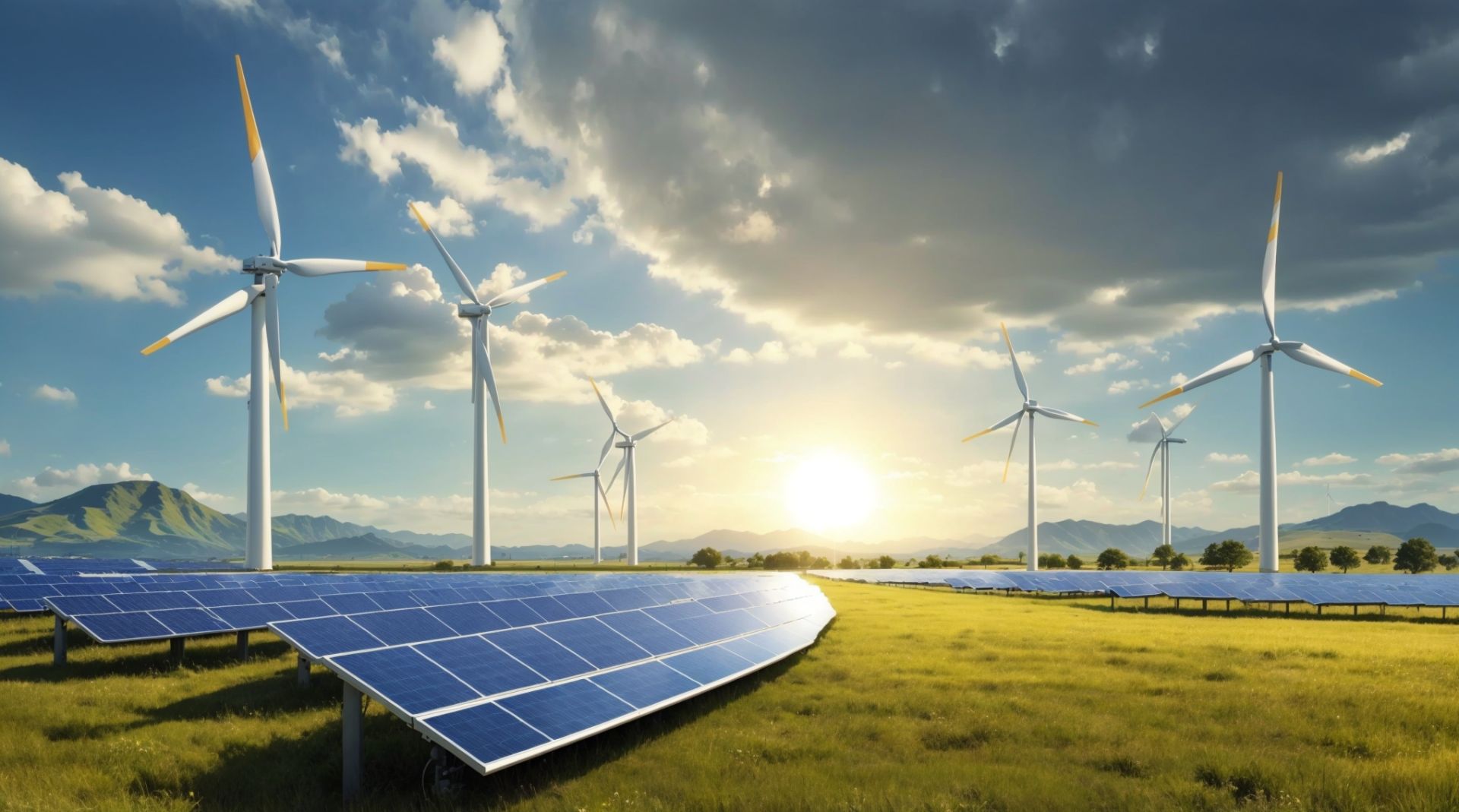Azerbaijan’s Renewable Energy Transformation: A Commitment to Sustainable Development
As the world grapples with the pressing challenges of climate change and energy security, Azerbaijan is emerging as a proactive player in the renewable energy sector. With a strategic focus on increasing the share of renewable energy sources, the Republic is positioning itself as a reliable energy partner and a responsible contributor to global sustainability efforts. This article delves into Azerbaijan’s ambitious plans for energy transformation, highlighting key initiatives, achievements, and future goals.
Strategic Focus on Renewable Energy
Energy transformation is a key priority on Azerbaijan’s national agenda. The government has set forth a comprehensive strategy aimed at enhancing the country’s renewable energy capacity. By the end of 2027, Azerbaijan plans to commission nine solar and wind power plants, collectively generating an impressive energy potential of 2 gigawatts. Furthermore, the country intends to develop an additional ten wind and solar power plants by 2030, which will elevate its total renewable energy capacity to up to 5 gigawatts.
Recent Developments in Electricity Production
In a recent article published in the "Azerbaijan" newspaper, Minister of Energy Parviz Shahbazov announced the successful start of operations at a new power plant, underscoring the increasing electricity production in the country. According to the minister, the total electricity production capacity of Azerbaijan has now reached 8,415.6 MW, marking a 4% increase compared to the same period last year. This growth is a testament to the government’s commitment to expanding its energy infrastructure and optimizing the use of renewable resources.
Diverse Energy Sources and Capacity
Minister Shahbazov emphasized the importance of utilizing various renewable energy resources, including hydro, solar, hydrogen, and wind power. Currently, Azerbaijan boasts a diverse energy portfolio, comprising 22 thermal power plants with a total capacity of 6,623 MW, 58 hydropower plants with a capacity of 1,406.6 MW, 9 solar power plants generating 278.1 MW, and 5 wind power plants with a capacity of 63.7 MW. Additionally, the country operates a 37 MW solid waste power plant and 3 hybrid power plants with a combined capacity of 7.3 MW, contributing to approximately 21.3% of the total production capacity.
Infrastructure Enhancements
In tandem with increasing generation capacity, significant advancements have been made in Azerbaijan’s electricity network. Currently, 254 substations operating at voltages between 110-500 kV, with a total capacity of 29,491 MVA, are in operation. The renewable electricity capacity of the country saw a notable increase of 373.6 MW last year, largely attributed to the Garadagh Solar Power Station (GES), which stands as the largest foreign-invested solar power plant in the Caspian and CIS regions.
The Garadagh Solar Power Station: A Milestone Achievement
The Garadagh Solar Power Station, inaugurated on October 26, 2023, marks a significant milestone in Azerbaijan’s energy landscape. Developed in collaboration with the prestigious Masdar company from the UAE, this 230 MW solar plant is the first of its kind built with foreign investment. Its successful launch signifies a new phase in Azerbaijan’s renewable energy journey, showcasing the potential for international partnerships in advancing sustainable energy solutions.
Rising Contribution of Solar Energy
The contribution of solar energy to Azerbaijan’s electricity production has seen remarkable growth. In the first nine months of this year, electricity production surged by 247.7 million kWh to reach 21.8 billion kWh, with solar electricity production increasing more than ninefold. This surge has elevated the share of renewable sources in the energy mix to 14.1%. Notably, Azerbaijan has also begun exporting electricity, with significant amounts sent to neighboring countries, including 898.7 million kWh to Georgia, 176.4 million kWh to Russia, and 1.2 billion kWh to Iran.
Vast Renewable Energy Potential
Azerbaijan’s renewable energy potential is estimated at a staggering 27,000 MW, with 23,000 MW derived from solar energy and 3,000 MW from wind energy. The geographical advantages of the country allow for solar energy production across nearly its entire territory, while regions such as Baku, the Absheron Peninsula, and Khizi are particularly favorable for wind energy generation.
Conclusion: A Commitment to Sustainable Development
Azerbaijan is firmly establishing itself as a leader in renewable energy transformation, with a clear focus on expanding its capacity in solar, wind, and other green technologies. The government’s ambitious plans to commission multiple power plants and attract significant investments reflect its commitment to combating global warming and enhancing energy security. The successful inauguration of the Garadagh Solar Power Station and the growing contributions from various renewable sources underscore Azerbaijan’s dedication to sustainable development. As the nation harnesses its estimated 27,000 MW renewable energy potential, it is poised to play a vital role in the region’s transition to cleaner energy and in fostering international partnerships for a sustainable future.
Nazrin Abdul is AzerNews’ staff journalist. Follow her on Twitter: Nazrin. Follow us on Twitter @AzerNewsAz.

